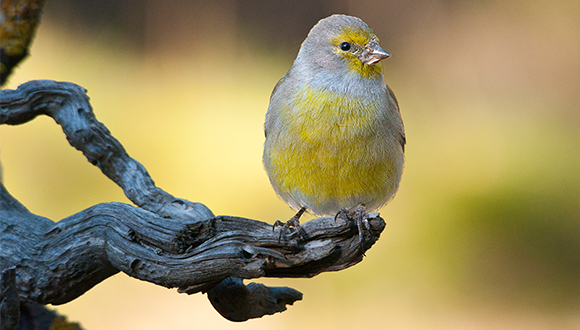A study just published in the scientific journal Nature Communications presents worrying results on animals’ adaptation to climate change. It concludes that while species are changing some aspects of their lives in response to global warming, they are not doing so quickly enough and do not always make the right changes.

Carried out by an international research group led by Viktoriia Radchuk, Alexandre Courtiol and Stephanie Kramer-Schadt from the Leibniz Institute for Zoo and Wildlife Research (Leibniz-IZW) in Berlin, the study is based on a review of data from 71 previous studies chosen from among more than 10,000 scientific articles on animals’ adaptation to climate change.
A review of 71 studies chosen from among more than 10,000 scientific articles.
The scientists who participated in the study include Constantí Stefanescu, a CREAF-associated researcher from the Granollers Museum of Natural Sciences; Iolanda Filella, a CREAF and CSIC researcher; and Joan Carles Senar and Antoni Borràs, researchers from the Barcelona Museum of Natural Sciences.
The changes made by animals are mainly phenological
Climate change is a threat to species and ecosystems, so analysing whether animals are capable of responding to cope with it is crucial. In nature, the most evident changes animals make in response to climate change are phenological adjustments, i.e. alterations to the seasonal timing of biological events such as hibernation, reproduction and migration. Changes in the body size and weight of some species have also been recorded, but the study found trends in such morphological alterations to be less clear than in the case of phenological changes.

The researchers involved in the study reanalysed data from 71 previously published studies, extracting information of great relevance to the relationship between possible changes in animals’ phenological or morphological traits and climate change over the years. They used that information to determine whether changes in traits gave species any kind of “fitness benefit”, i.e. an improvement in their survival or reproductive rates.
“To investigate whether animals’ responses to climate change are actually adaptive, we had to focus on birds because they’re the group on which we have the most comprehensive information”, says Viktoriia Radchuk, the study’s lead author. “Nonetheless, the available information on other groups of animals – insects, amphibians, mammals – shows their changes to be qualitatively similar to those made by birds”, she continues. “For example, it’s very clear that warming in temperate climates is bringing most species’ seasonal biological events forward”, she explains.
The scale of climate change is too great for the changes made
According to one of the study’s co-authors, Steven Beissinger from the University of California, Berkeley, “this suggests that species could live in their natural environment despite warming, as long as they adapt quickly enough to withstand climate change”. That is not happening, however. “Although some populations are adapting, they aren’t doing so fast enough to guarantee their survival”, states Alexandre Courtiol. “While phenological changes are taking place, they’re not enough to compensate for the new environmental conditions being generated”, he adds.
The researchers came to that conclusion by comparing field data on phenological changes in various bird populations with the predictions of a theoretical model that assumes optimal phenological change to compensate for new environmental conditions. On that basis, the scale of the phenological change of 9 of the 13 species studied was found to be insufficient to rule out the risk of their extinction.

The most troubling aspect of the study’s findings is that the data analysed generally included common, abundant species, such as the great tit (Parus major), the European pied flycatcher (Ficedula hypoleuca) and the common magpie (Pica pica), all of which are renowned for their ability to adapt to new environmental conditions. “Data on rarer or more at-risk species are in short supply at present, so we haven’t analysed their responses to climate change yet”, says Stephanie Kramer-Schadt, before noting that “we expect the outlook to be even gloomier in such cases”. The researchers hope their analysis and datasets will stimulate research on animal populations’ ability to deal with global change and contribute to improving prediction accuracy to assist future management and conservation work.
Article:
Radchuk V et. al (2019) Adaptive responses of animals to climate change are most likely insufficient. Nature Communications 10, 3109.






